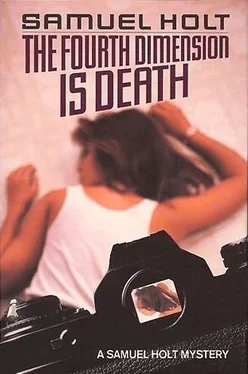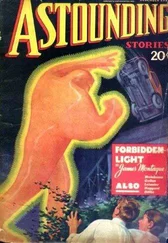“No bother,” I assured her, and it was the truth. Walking her back to the front door, I said, “Does this mean I won’t be needed around here any more?”
She smiled, briefly, perhaps acknowledging the difference between her regime and the old one. “If you’re asking,” she said, “if you can leave town, of course you can. You could leave the country, if you wanted.”
The publicity and problems all around me here would die away of their own accord if I weren’t present to have my very existence fan the flames. “Leaving town is good enough for me,” I assured her, and the next day — after an unsatisfactory evening at Vitto Impero with Anita and Julie Kaplan — Robinson and I flew back to LA. By commercial air. Without incident.
Monday, November 23rd; a month since the still-unsolved Dale Wormley murder had changed my normal procedures all around and dumped me back on the West Coast instead of the East at the wrong time of year, leaving me edgy and bored, with nothing to do but — for the first time since I’d bought this house — watch leaves fall into the pool. I’d always been away at this untidy season, and it was amazing to me just how many leaves there were on each and every tree on my property, and how unerringly they would spiral across driveway and lawn, catching the updrafts, spinning and tumbling, stretching like a runner sliding into third, to at last tap down as gently as a butterfly on the surface of the pool. And get wet. And sink.
My friend Bly Quinn had some time off from her TV sitcom writing, so the two of us took a long weekend away together, driving up the coast to look at some land I own in Oregon, a tract partly wild and partly slated for development that I’d bought when PACKARD first provided me with a bunch of money and all my advisers pointed out that Gene Autry might have gotten rich by singing but he got rich rich by buying real estate. So I bought real estate; in Oregon, for some reason, I no longer remember why. It had seemed like a good idea at the time. Various impact statements and water tests and stuff like that are being done, year after year, and the theory is that some day a bunch of high-ticket houses will go up on large lots on the developable part of the land, all of them backing onto the permanently wild chunk, with its hills and rocks and stream. From time to time, when at a loss for anything better to do with myself, I hop into the open Porsche and drive up to Oregon to look at my land. It’s always raining when I arrive.
We didn’t talk about the Dale Wormley murder on the trip, all of the conversation on that subject having been used up the first couple of days I was back in LA. Bly had put her scriptwriter’s mind to work on the case, coming up with plots and scenarios and murderers and motivations that were all much better than any possible reality, and once that phase wore itself out she grew as tired of the subject as I was, and we got on with our lives. So what we mostly talked about on the trip was her recent desire to write a play for me.
Her idea was — and I suppose it’s not that bad an idea, really — that since I wanted a non-Packard role to remind the world that I was still alive and still an actor and still capable of performing other parts, and since so far Zack Novak had failed to find any producer willing to go along with that proposition, what I should do was have a play tailor-made — or tailor-written — just for me. Take it to backers, raise the money, put it on first in Los Angeles and see what might happen next.
The initial flaw with the scheme was that neither of us knew what this breakthrough play should be, and for some stupid reason that seemed to create a great deal of tension between us. It was a ridiculous reason to fight, but neither of us seemed able to get out of its way. Bly’s point, apparently, was that if the play were to be tailor-made for me , I was the one who should choose it. But my point was, it’s up to the playwright to write the play; make a suggestion, see if I like it, that’s how a tailor-made play gets done.
This argument seemed, luckily, to be confined to the car. It simmered between us all the way up the coast, then disappeared for the weekend, then started up again on the drive back, getting worse and worse, reaching some sort of manic peak when I turned off the San Diego Freeway at Sunset Boulevard and drove eastward to the Bellagio Way entrance to Bel Air. We squabbled up through the various Bellagios (Place, Road, Terrace) and off onto San Miguel Way, at the dead end of which I live.
Because of this bickering, I paid no particular attention to the dent-fendered orange Pinto parked to the left of my drive, and didn’t even notice — though I should have — the young guy dressed like a tennis player who climbed out of it, carrying a sheaf of papers, as I stopped the Porsche and punched the button that electronically opens my driveway gate. The broad chainlink gate swung back in its inexorable but leisurely fashion and I did at last become aware of the young guy walking toward me, grinning amiably, the sheaf of papers held like schoolbooks in his swinging left arm.
“Mr. Holt?” he called.
I knew it wasn’t a fan, looking for an autograph. I didn’t know what it might be instead, or how seriously I should take it. I didn’t know if I should crash my own gate, or back up, or just sit there; so I just sat there, head half-turned so I could watch both the young guy approach and the gate recede, and the guy swung his left arm out farther than usual, calling, “You’ve been served, sir!” as the sheaf of papers left his hand and rose fluttering like a pigeon coming apart, up over my raised side window and right into my lap.
A bomb? My hands were under it before it hit, lifting it, throwing it back over my shoulder, out of the car and onto the pavement behind me, as the young guy nonchalantly but smoothly got behind the wheel of his Pinto and drove quietly away, without any fuss.
“What—?” Bly’s face was bloodless, her eyes huge. “What was that?”
“Jesus.” I looked in the rearview mirror. The Pinto was disappearing around the curve of San Miguel toward Bellagio. The papers fluttered faintly on the ground, just visible beyond the trunk of the Porsche. Served. “By God,” I said, finally recovering, “I think that was a process server.”
“A what?” She twisted around, staring at the empty road where the Pinto had been, then at the forlorn papers on the ground. “Just a sec,” she said, and jumped from the Porsche, and darted back to retrieve the papers. She returned slowly to the car, studying them, lifting the top sheet as she sat down beside me, shaking her head, murmuring, “Jarndyce and Jarndyce, by golly.”
Bly does that. She makes references to things, things in history or literature or wherever, and I rarely know what they are, and I’ve learned not to be troubled by them nor to ask what they mean nor to let them distract me from the main point, which in this case was, “What is it?”
“You’ve been served, all right,” she told me. “Civil suit, Federal court. Who’s Laura Wormley?”
“Laura?” I frowned, trying to think, then vaguely remembering a conversation with Julie Kaplan, back at Vitto Impero a month ago. “I think it’s— It may be Dale Wormley’s mother.”
“Well, she’s suing you,” Bly said. “In Federal District Court in New York County, New York State, which I take to be Manhattan.”
This made no sense. “Suing me for what? ”
“For violating her son Dale’s civil rights.”
I just couldn’t get it. “Violating his civil rights? How in Christ’s name am I supposed to have done that?”
Bly put the papers on her lap. She looked at me. “By murdering him,” she said.
Читать дальше












